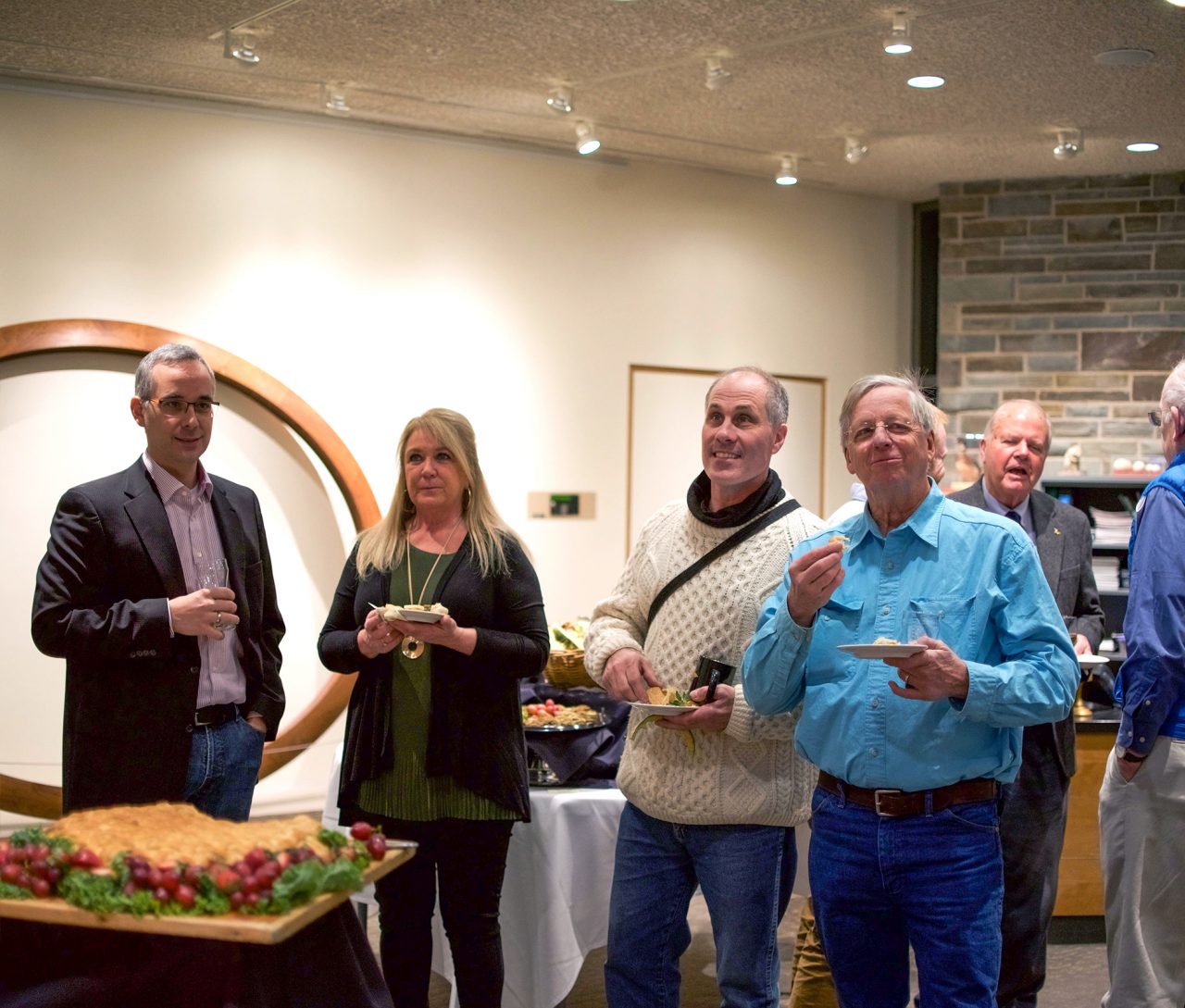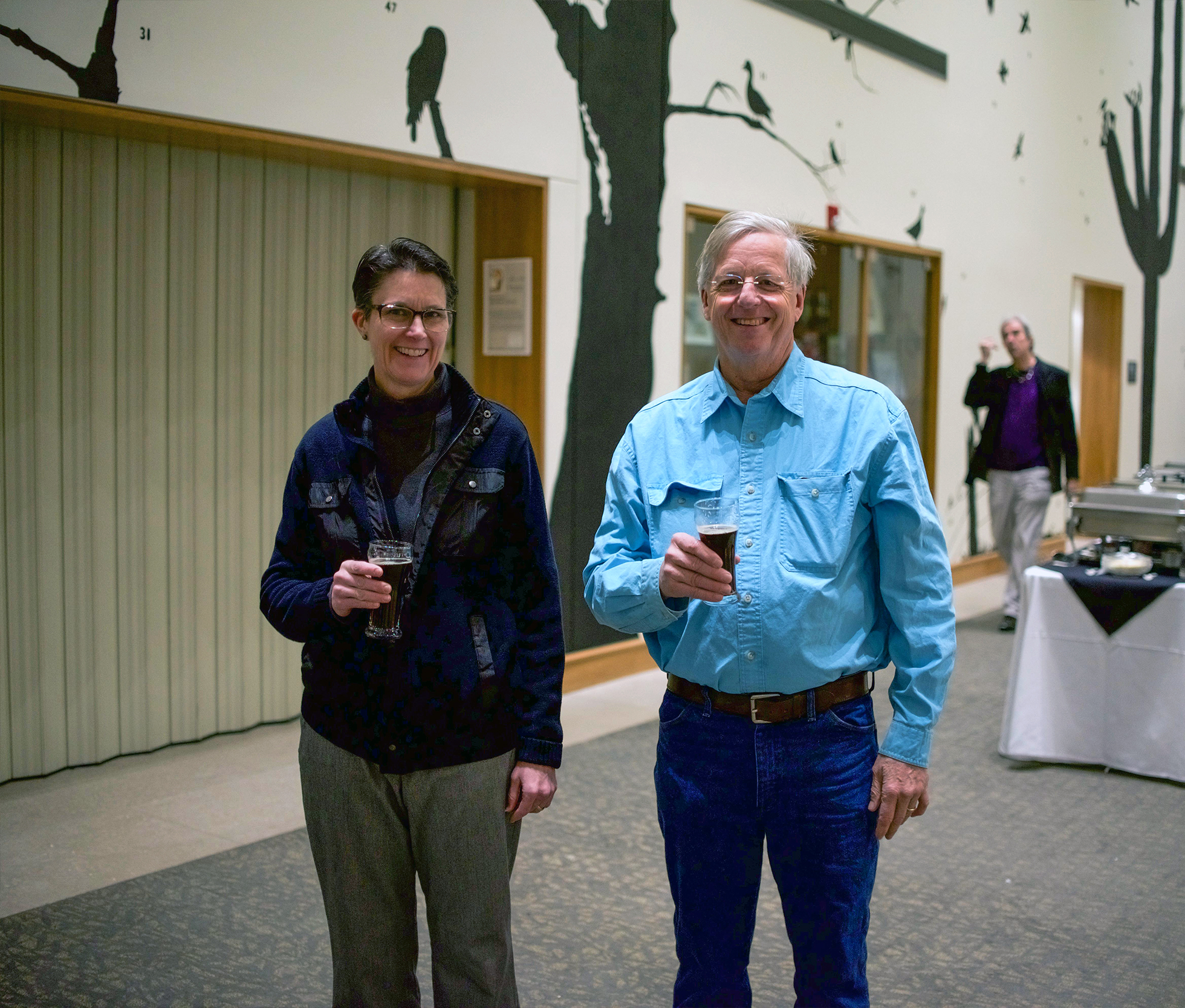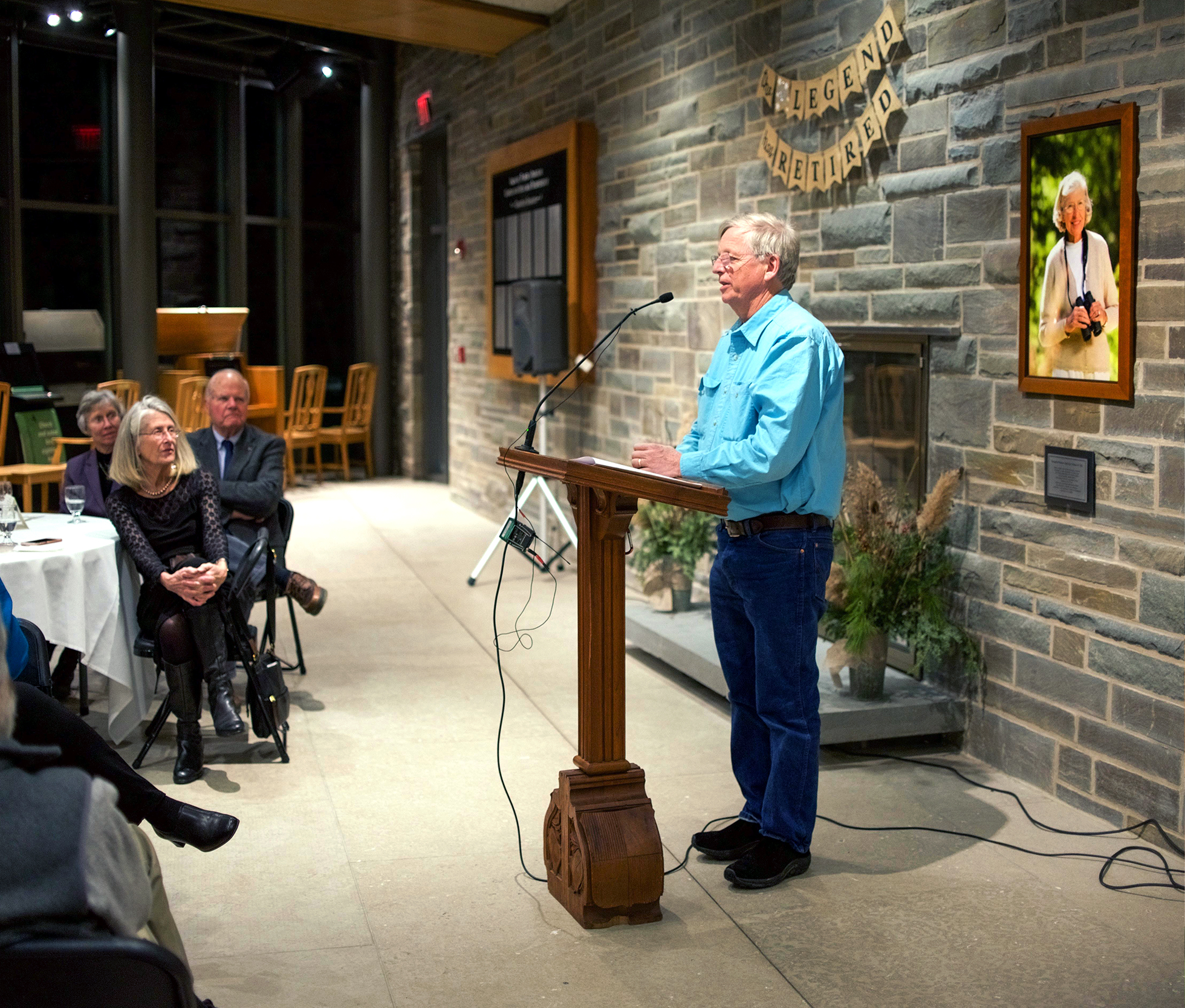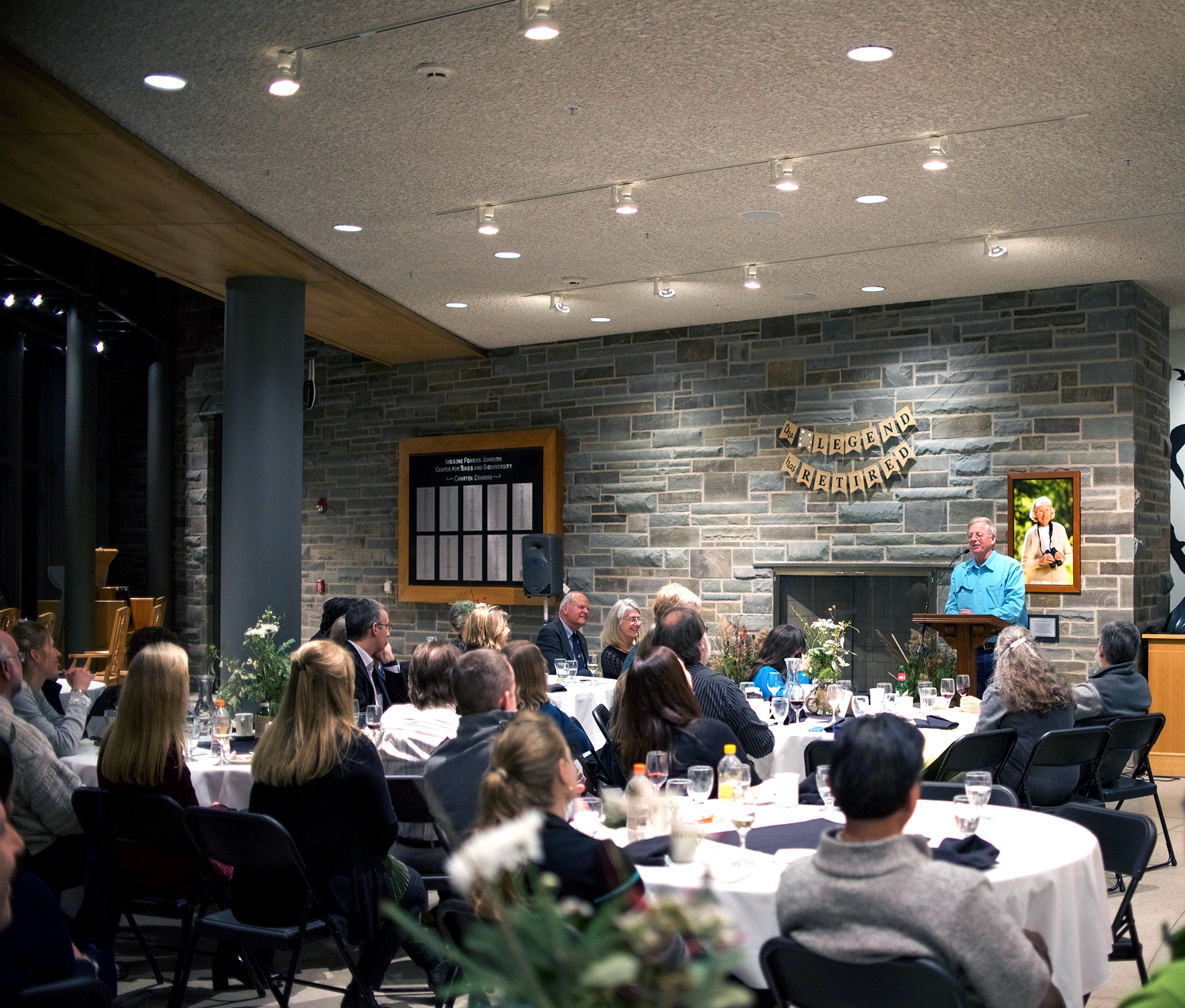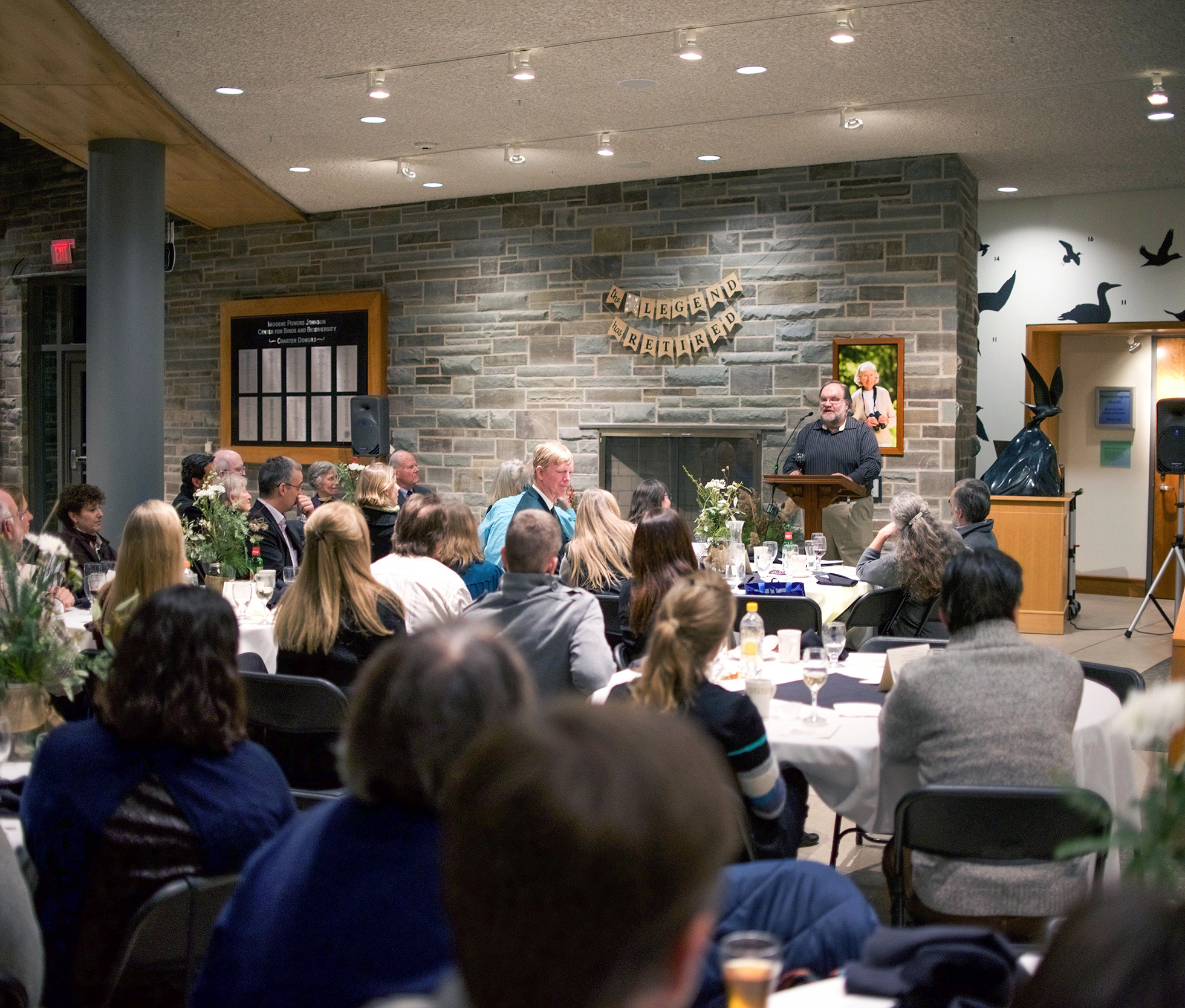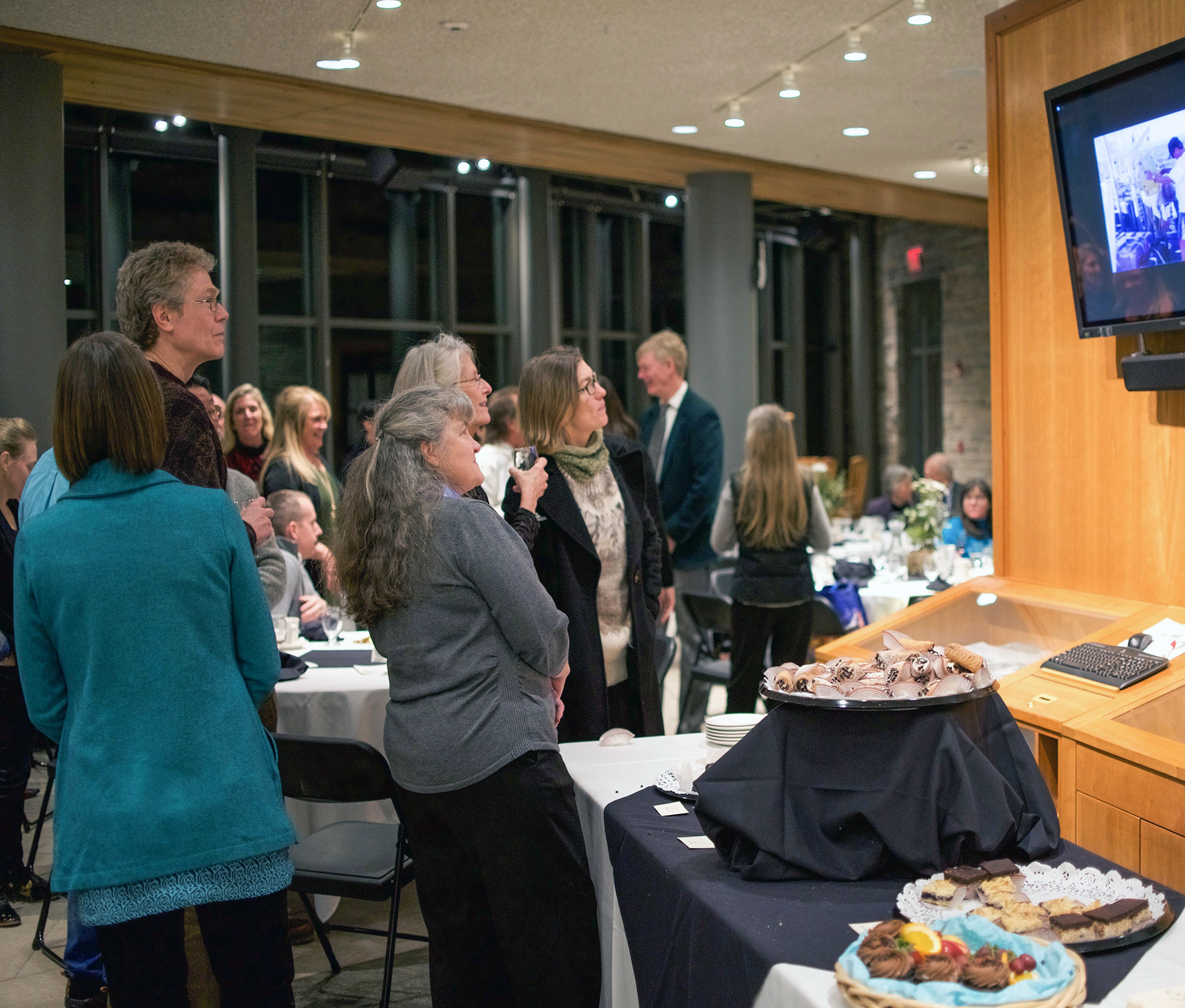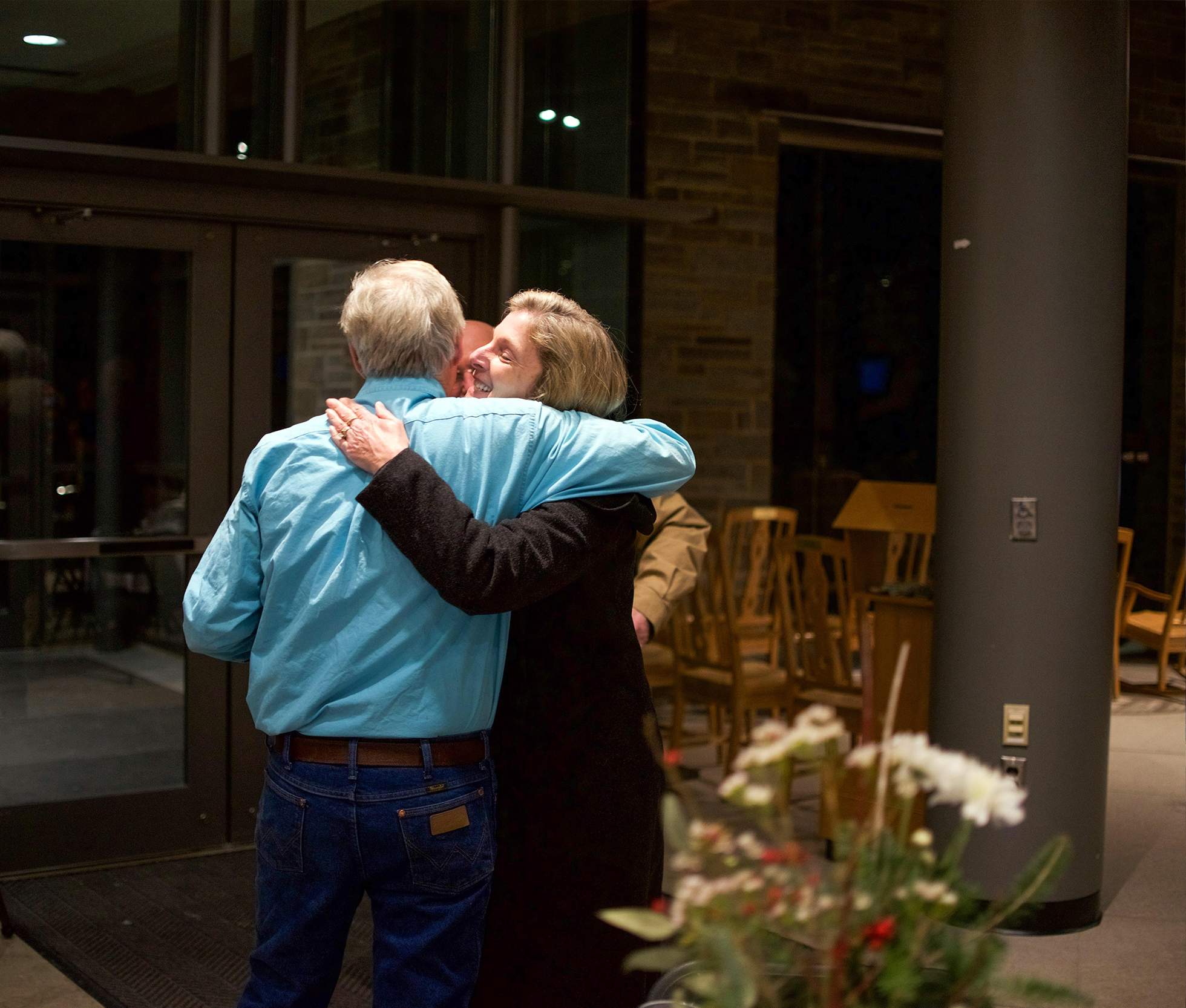An Unexpected Party
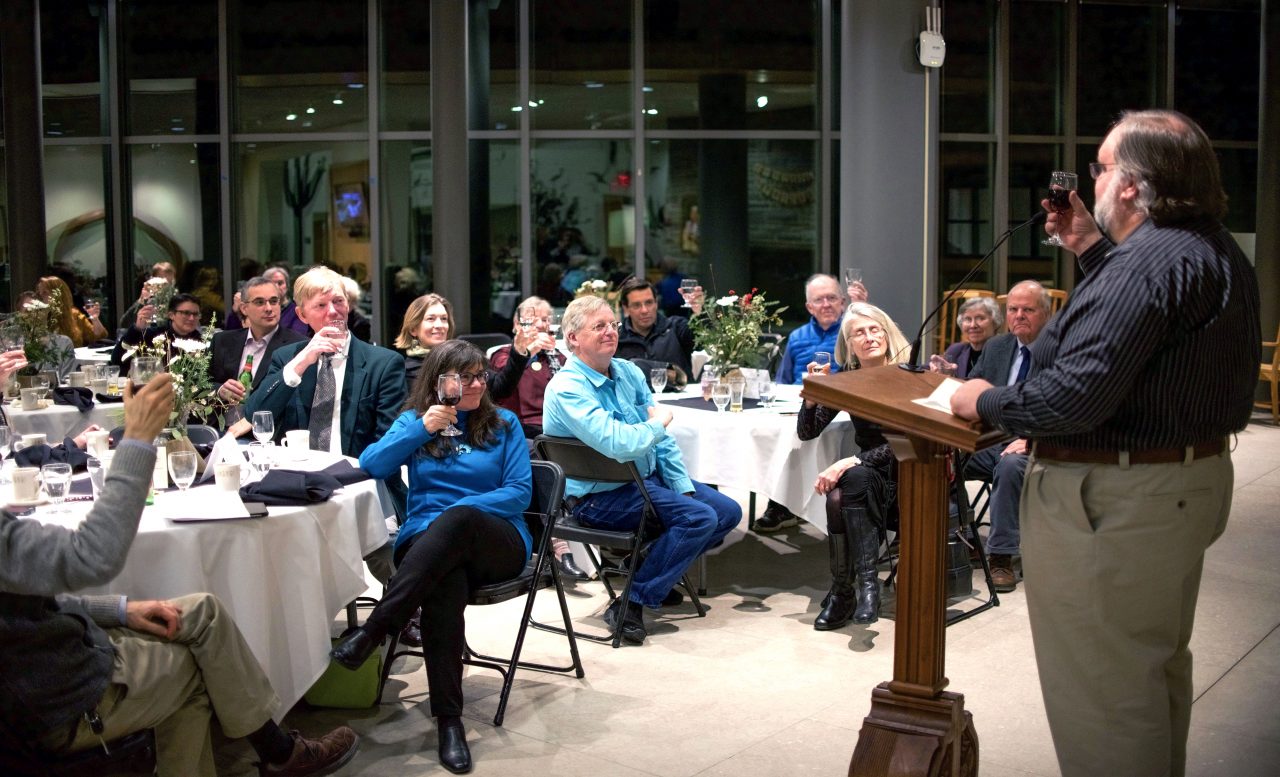
On an evening in early January, on the heels of the historic northeast US “bomb cyclone,” around 60 people braved wind chills of -20° F to gather at the Lab of Ornithology in Ithaca. They came to honor Dr. Christopher W. Clark, the founding Director of the Cornell Bioacoustics Research Program, who retired from 30 years at Cornell University at the end of 2017.
When Chris first heard last fall that there would be a gathering to honor him upon his retirement, he envisioned “a few people getting together in a back room over chips and guacamole.” To his surprise, he found himself the guest of honor at an elegant catered dinner in the Lab’s Visitor Center, surrounded by an admiring crowd of colleagues, friends, and former mentors, employees, and students. Some guests traveled across the continent for the event, and some Chris hadn’t seen in many years. Others who were unable to attend sent written accolades and photos of past adventures shared with Chris.
Just over thirty years ago, Chris Clark founded the Bioacoustics Research Program (BRP) in a corner of the small cinder block building that then housed the Lab of Ornithology. Starting with no resources except his own drive, determination, and creative ingenuity, Chris assembled a team to help him build a world-class applied research lab. Today the program that Chris founded is widely recognized, in the words of a recent visiting researcher, as a “mecca for scientists interested in animal sounds worldwide.”
Methods and approaches pioneered by Chris, and tools made at BRP, are now used by scientists around the world to monitor and study wildlife populations. By melding science, technology, and scientific storytelling, Chris has opened the eyes of scientists, regulatory agencies, the military, industry, and the general public to the ways that anthropogenic (human generated) noise can disrupt communication for marine animals. Scientists and engineers that Chris mentored or inspired are now spread far and wide, using bioacoustics to address important conservation and scientific problems, often collaborating with others that they met through BRP.
Over the course of that chilly January evening we heard reflections and stories about Chris and his contributions to science and conservation from folks who have known him well during some four decades, from grad school onward.
Former students, now successful scientists and professors in their own right, spoke and wrote movingly of the many ways that Chris had inspired, supported, befriended, and profoundly influenced them, personally as well as scientifically.
The evening was rounded out by a glimpse of a different side of Chris. From an old recording, we heard him sing two songs composed on the windswept coast of Argentine Patagonia in the 1970s, where he did his first field research on southern right whales as a grad student with Roger and Katy Payne. There Chris wrote and sang many songs, inspired by the sea, the whales, and the adventures of field work, accompanying himself on a guitar that Katy had given him. Many of those assembled had no idea that Chris was a songwriter, along with all his scientific achievements.
Nobody who knows Chris Clark expects that an arbitrary milestone called “retirement” will in any way diminish his passionate commitment as an advocate for scientific conservation. We all look forward to watching how Chris continues to make a difference for many years to come.


